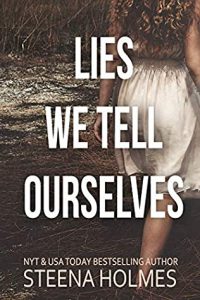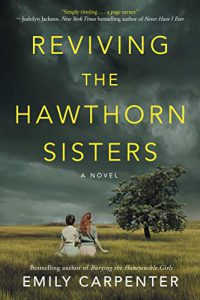 This week we’re looking at a breakneck psychological thriller that also serves as a clarion call on an issue many are speaking of quite a bit over the last decade. This week we’re looking at Lies We Tell Ourselves by Steena Holmes.
This week we’re looking at a breakneck psychological thriller that also serves as a clarion call on an issue many are speaking of quite a bit over the last decade. This week we’re looking at Lies We Tell Ourselves by Steena Holmes.
Trying to force myself out of the writing funk I’ve been in for several months now when it comes to these posts, I want to add at least a little bit to the Goodreads review below.
First, I love that Holmes frequently includes a reference to one of her friends’ books – usually released in the same year – in her books. This one is no different there, and the book in question (which you’ll have to read this book to find out) is in fact one that was also a Featured New Release on this very blog earlier this year.
Second, at least on the ARC copy I read Holmes includes a note at the end about a particular Easter Egg… which I completely missed. I remember getting the sense that it was a very random encounter – usually a good clue of an Easter Egg – but in my defense, I’ve read over 200 books since reading Holmes’ two releases last fall. (The Perfect Secret and The Patient, both of which included this same character, apparently.) Indeed, I actually thought that a more major character was the joining fabric potentially of all three books – and I would love to see future books including that particular character. Let me know which character you think I’m referencing here, I don’t want to give it away in this post. 🙂
Finally, this book really does go in depth with nearly all facets of sex trafficking, and while most of the worst of it is “off screen”, there is enough discussion in enough detail of enough facets that this book could in fact be very difficult to read if this issue has impacted you. But honestly, I think that in that case, you need to read this book arguably more than the rest of us. If only so you can write your own review and tell us just how close Holmes gets here. From the outside looking in, it seems that she captured the emotions and struggles quite well indeed, but this is something that I have no direct knowledge of and thus can’t know. So please, even if you think this book will be difficult for you, read it and write a review on Goodreads and Bookbub and let the rest of us know just how close – or, perhaps, far off – Holmes really was.
As always, the Goodreads review:
Continue reading “Featured New Release Of The Week: Lies We Tell Ourselves by Steena Holmes”

